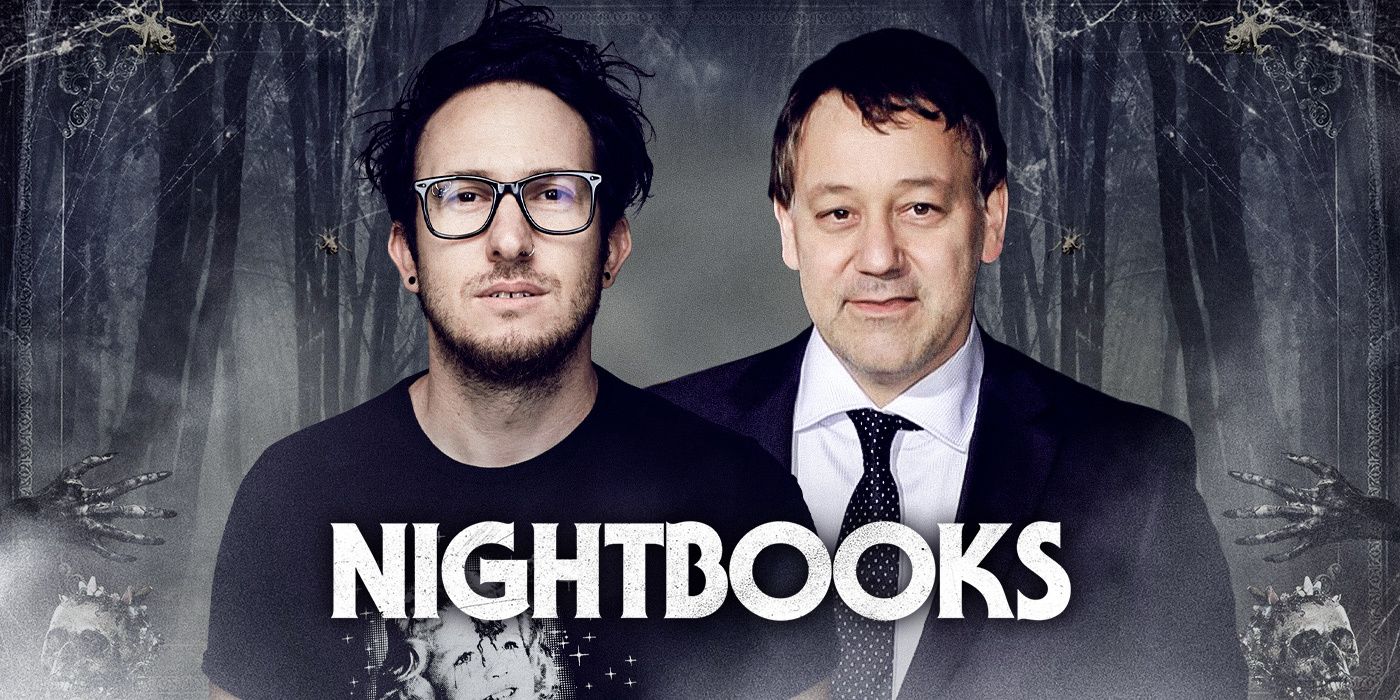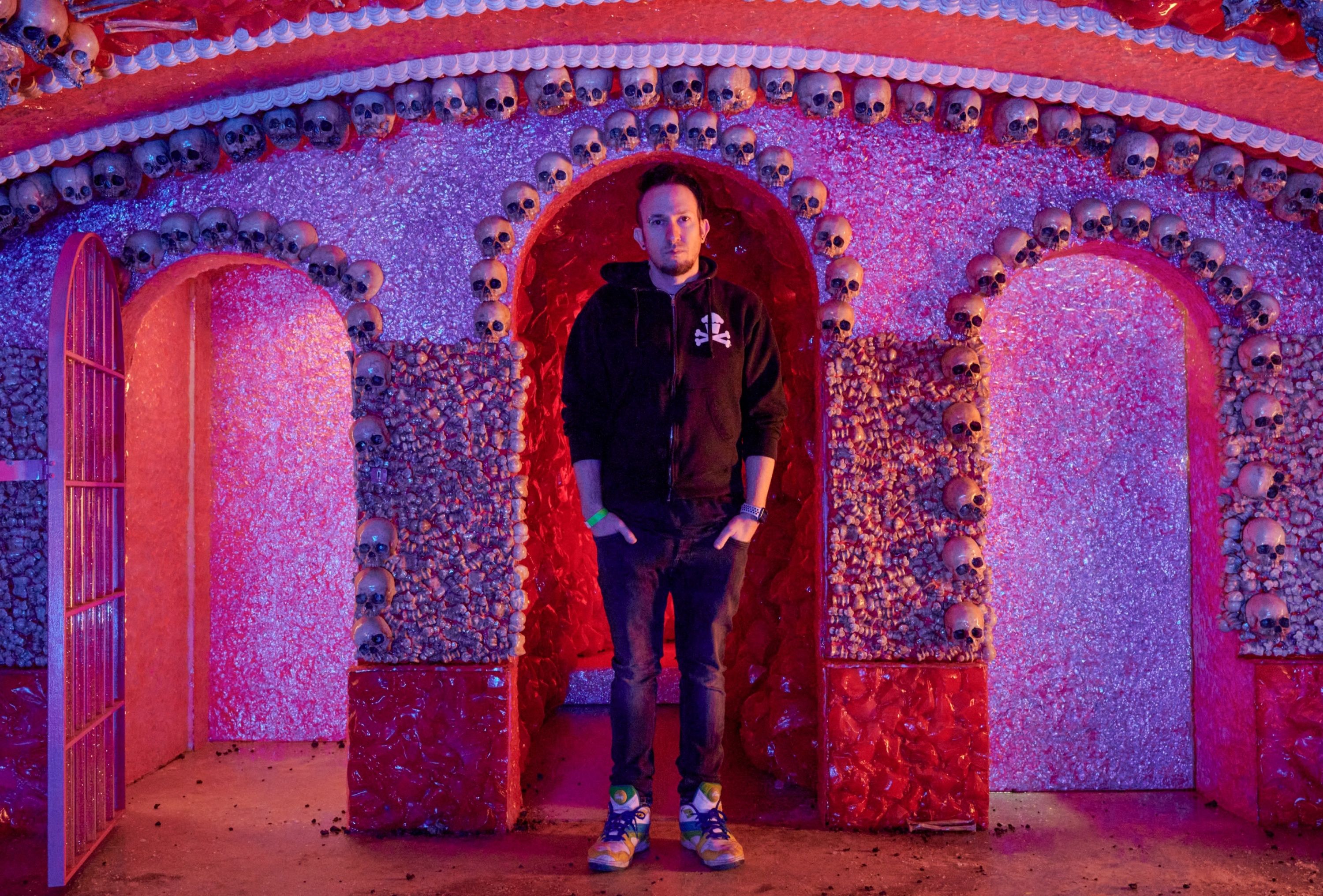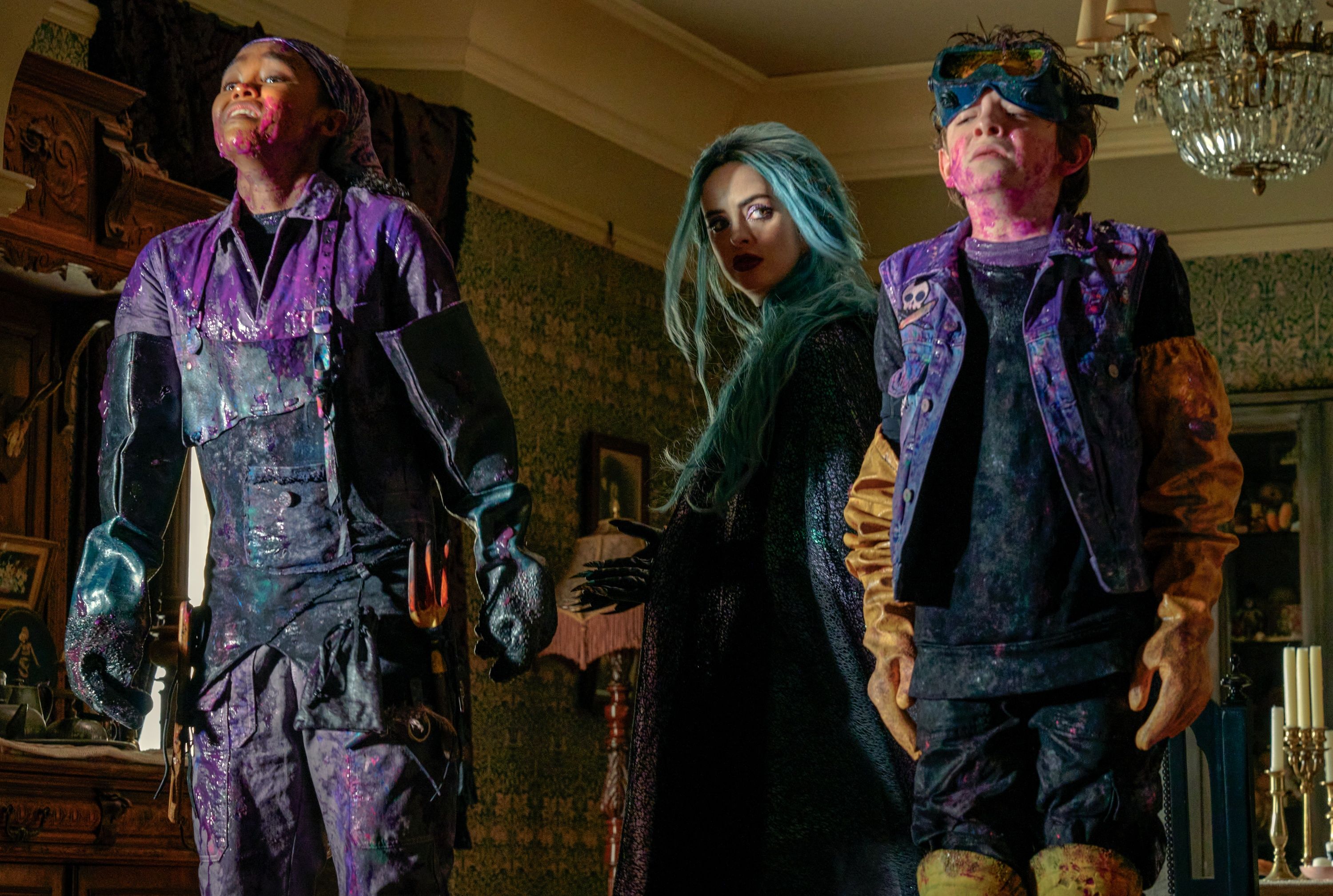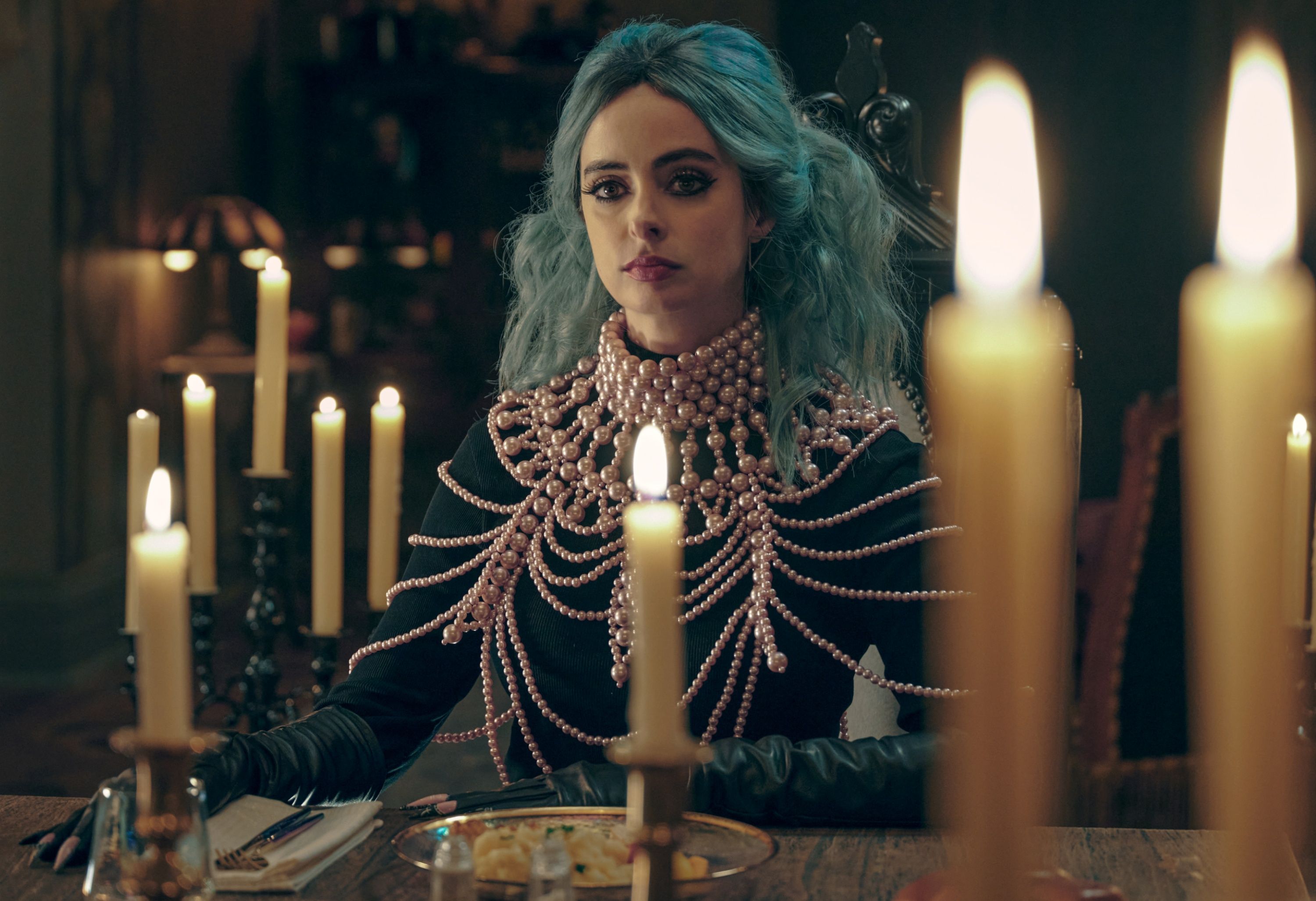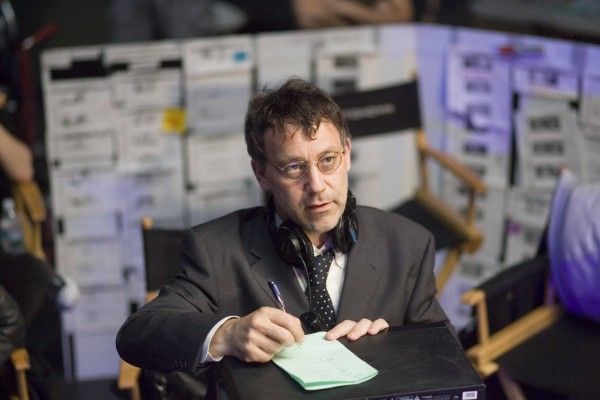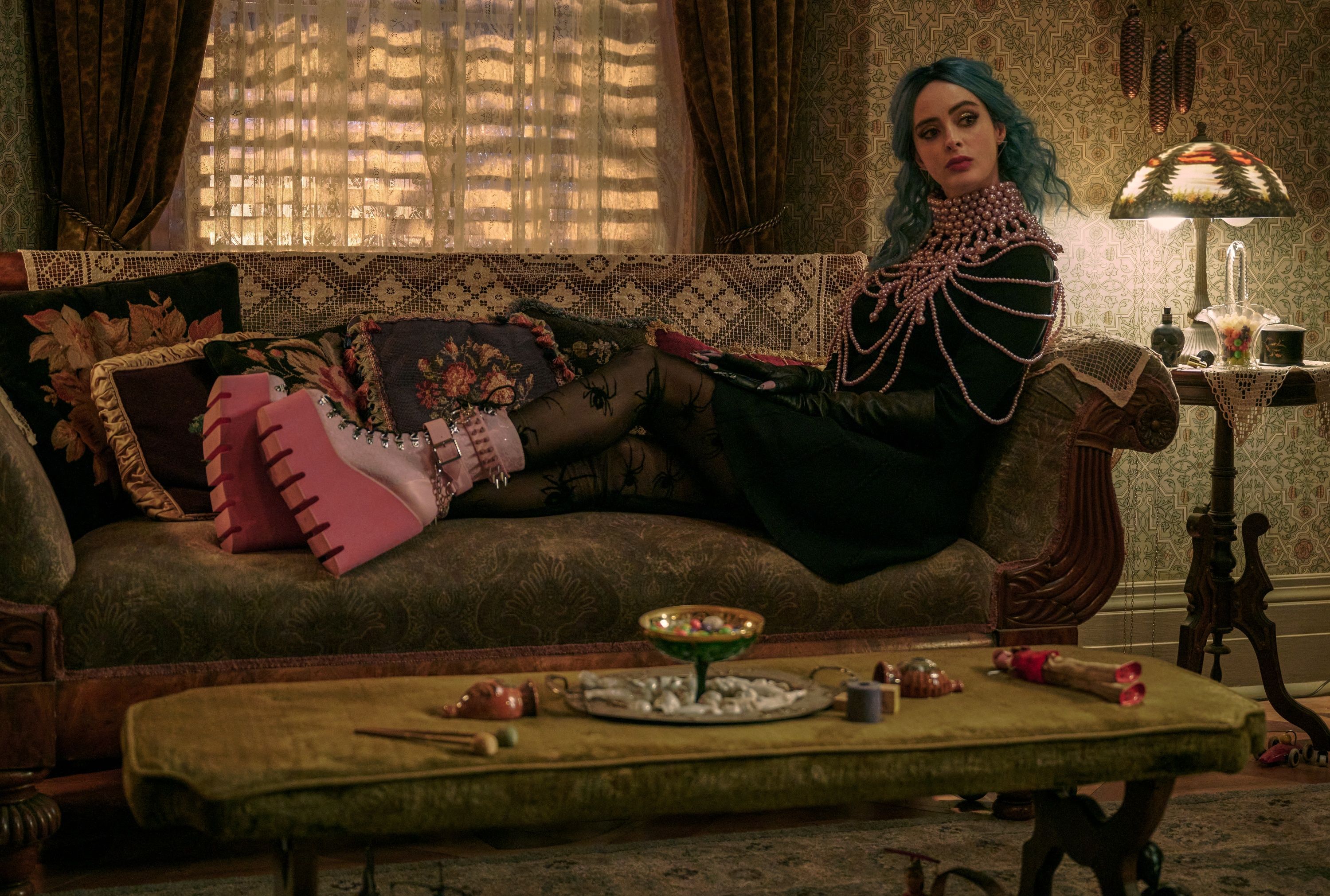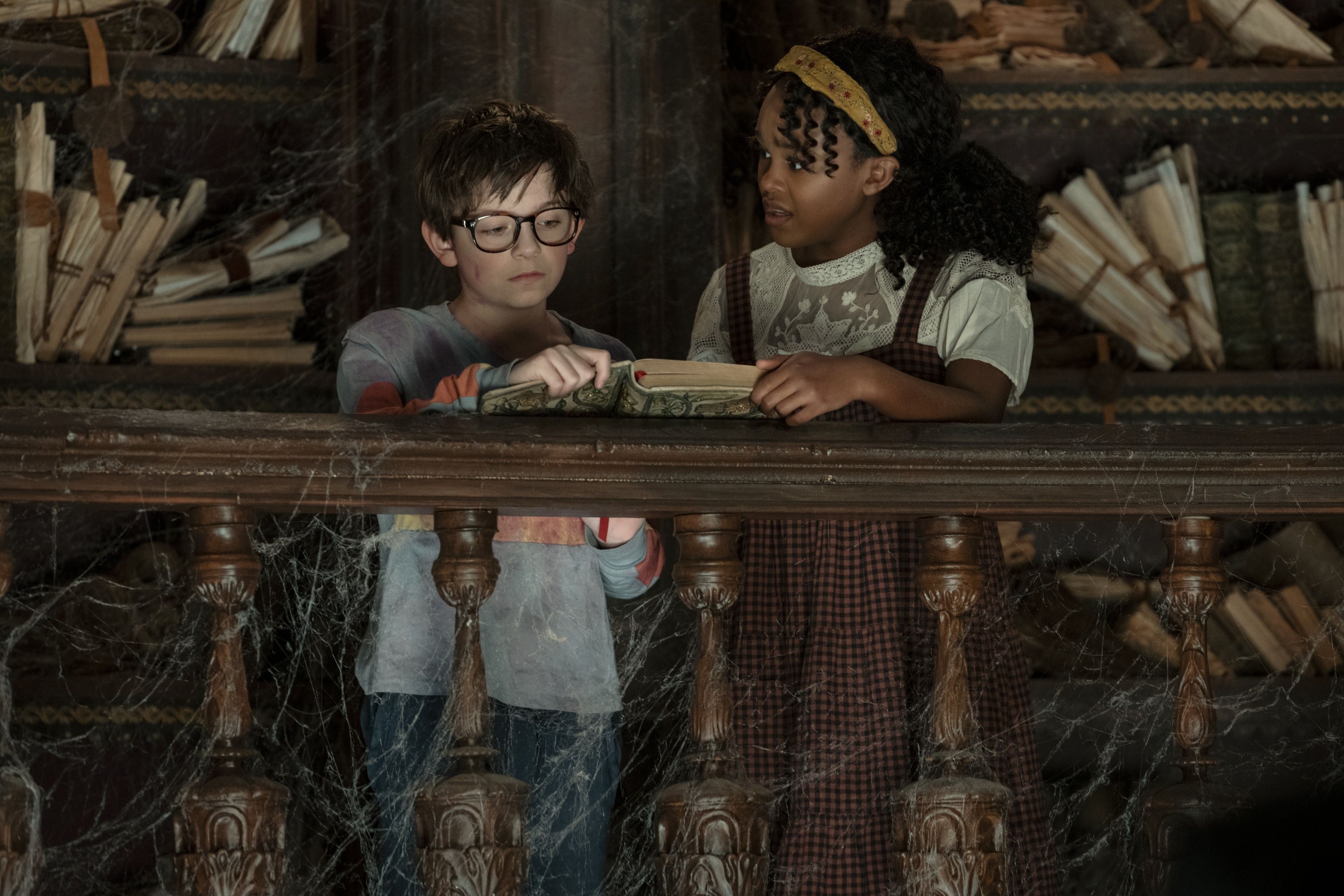From director David Yarovesky and producer Sam Raimi, the Netflix original Nightbooks is a fun family horror-fantasy flick at any time of the year, but it’s an especially entertaining ride during the Halloween spooky season. The story follows Alex (Winslow Fegley), an imaginative boy with a passion for writing scary stories who finds himself captured by an evil witch (deliciously brought to life by Krysten Ritter) that expects him to tell her a new scary tale every night, right when he’s sworn to never write again, and he must reignite his creative spark in order to stay alive and break himself along with another young prisoner (Lidya Jewett) free.
During this phone interview with Collider, Yarovesky and Raimi talked about making horror for a family audience, how much they appreciate each other’s work, the film’s nods to The Lost Boys, the incredibly talented cast, and whether they’d like to revisit this world. Raimi also talked about why he didn’t think he’d return to the comic book/superhero world again before taking on Doctor Strange in the Multiverse of Madness, while Yarovesky shared personal story about how much Raimi’s Spider-Man trilogy meant to him.
Collider: I really loved this. I love that you made a kid’s horror film that’s actually scary. Why was that important to you? Is there a trick for making sure that it’s horror that’s appropriate for family entertainment?
SAM RAIMI: As far as the level of horror, it started with J.A. White’s really fun and spooky book, Nightbooks. When we read that, it was so entertaining and made us giddy. It made us giggly and spooked, at the same time. We just wanted to share that brand with viewers everywhere. A lot of times, kids don’t get to see spooky stuff because it’s too intense. We presented this book to Netflix and said, “We think there is an audience out there for something that is fun and spooky with a good lesson underneath it and with a good character who shows us that, even if you’re different, it’s not a bad thing. You don’t have to run from your differences. You can embrace them.” Oftentimes, the strength of a hero is to recognize what makes them different and to be their own champion. We thought it was a good guide and a good role model for other kids, wrapped up in a fun, spooky story. But we never thought that it was so scary that it would be harmful to anyone or be looked down upon by parents. We never really thought, “Does this go too far?” We just trusted in our hearts that it was a fun story to share. We felt that it was just right and we never had to hold back from being too intense.
David, how did that affect the way that you wanted to handle visually and what you wanted to do with what we see in the film?
DAVID YAROVESKY: What Sam said is absolutely true, I really never felt like I had to pull back or anything. There was a built in and obvious container that we had to sit in because I wanted families to be able to enjoy this together. There was nothing in the content of this story that pushed the boundaries o that really wouldn’t be safe for families and kids to watch together. I remember being a kid and loving horror movies. I remember being a kid and loving Sam’s movies, seeing his work, and just being blown away by that. And then, I would watch content that was made for me and it just always felt very dumbed down and simple. It just didn’t speak to me. As a kid, I knew you could have pushed it further. Those things that I watched as a kid didn’t need to talk down to me or dumb things down so much. I wanted to make something for me, as a kid in the past, or for kids in the future, who wanted to be taken away on a spooky adventure with their family, and still feel anxiety and still be wowed by impressive visuals, but it was safe for them.
I first saw A Nightmare on Elm Street at a slumber party when I was nine years old, I was reading Clive Barker books as a child, and I saw The Lost Boys in a theater when I was 11. How did the nods to The Lost Boys happen?
YAROVESKY: It sounds like you and I are cut from a similar cloth. I saw A Nightmare on Elm Street at a very young age. I saw The Lost Boys in a theater at a very young age. All of those things were, huge inspirations. I raced to the theater when Army of Darkness came out and saw it on opening day because I couldn’t wait until night. Those movies had just a huge influence on me. There was something fun that I wanted to do with the movie, early on. I wanted to show that the things that the things that Alex loves influence his creativity, so I wanted to find a movie with a visually distinct style that could do that. The Lost Boys used red a lot, so I thought it was an easy way to tell that story. At the same time, there was this meta connection. Me having an opportunity to work with Sam was a dream come true for me. Sam’s work, growing up and being so influenced by him, his influence would naturally show up in my work and I thought there was this cool meta connection with this torch passing or this generational concept that we’re all standing on the shoulders of the people that came before us. We’re all influenced by the great things we saw, and they helped shape us and our creativity. And so, I thought The Lost Boys was a simple way to illustrate that, and it’s also just a really great movie that Alex would love.
Not to make this more awkward for you guys to talk about each other, but Sam, what was it like for you to work with David and to collaborate on this with someone who has been so influenced by your work? Were you aware of how influenced he is by your work, when you were working together?
RAIMI: Well, he’s being very kind on this phone call because I’m honored. When we met, we found that we had similar loves of movies and the history of movies. He told me that he really liked Evil Dead and I appreciated that pretty much, but that’s where we left it. It was really about his vision and how he was gonna make the movie. It was really me following his lead, and the entire crew following his lead, as a great filmmaker. I watched him make great original decisions and would look at dailies. He made great casting choices. He really was somebody that I followed. So, that was a sweet moment when a director told me how much he admired one or two of the movies I’d made, but then it only became about, “Now, let’s make this movie.”
I love that you can share an appreciation of the work, and then bond over making new work together, which seems like the most fun for an artist.
RAIMI: Yeah.
YAROVESKY: Absolutely. I think this whole industry is built on people who love movies and are fans of the people that have come before them. There are a million better ways to make money. There are a million simpler and easier jobs that you could take on in your life. But something that unites all of us is that we’re fans of film and we’re fans of movies. Oftentimes, a thing that people bond over or unite with is when they go, “I love this movie. I love these movies. These movies were an influence on me.” I think that’s a common occurrence in this town, or at least I hope it is.
RAIMI: Yeah, I think you’re right.
David, as someone who is a fan of Sam’s work, has seen what he’s done with big-budget comic book/superhero movies inspired you to want to tackle something like that yourself? Would you want to jump into that realm?
YAROVESKY: Yeah. It’s fun to talk about in front of him because it takes on a different meaning in front of him. When I was growing up, I really looked up to him a lot because there weren’t a lot of directors that went from making small, crazy horror movies into giant studio tentpoles. People weren’t really doing that, especially not in that way. I still think that Spider-Man 2 is one of the greatest superhero movies of all time and the Spider-Man trilogy cracked how the modern superhero movie can work. What a testament to Sam, to be able to go from Evil Dead, where it’s no secret that was not made for a ton of money, to the Spider-Man trilogy. What an inspiring thing for me to see.
Sam, I don’t know if I ever told you this, but I saw you one time in person when I snuck into the Spider-Man 2 premiere party. It was in West Los Angeles somewhere and I was living down the street. I was like, “Oh, my God, there’s a premiere party for Spider-Man over there. I’ve gotta see if I can get in.” I just snuck in and I looked around and was like, “Oh, my God, Sam Raimi is over there.” All of these people were there. We worked together all throughout the film, and Sam was such a champion for the movie and for my vision and had so many great ideas that he brought, but then, in the sound mix, we actually got to meet in person, which was amazing.
RAIMI: You snuck in that party?
YAROVESKY: Yes, I did. I snuck in. It’s so funny, right?
RAIMI: I can’t believe you were there.
After making three Spider-Man movies, were you surprised to find yourself in the position to be doing the Doctor Strange sequel? Were you surprised to be returning to that kind of world again?
RAIMI: Yes. I didn’t know that I could face it again because it was so awful, having been the director of Spider-Man 3. The internet was getting revved up and people disliked that movie and they sure let me know about it. So, it was difficult to take back on. But then, I found out that there was an opening on Doctor Strange 2. My agent called me and said, "They’re looking for a director at Marvel for this movie and your name came up. Would you be interested?" And I thought, "I wonder if I could still do it." They’re really demanding, those types of pictures. And I felt, "Well, that’s reason enough." I’ve always really liked the character of Doctor Strange. He was not my favorite, but he was right up there with the favorites. I loved the first movie. I thought Scott Derrickson did a wonderful job, an incredible job. So, I said yeah. They left the character in a great place. I didn’t think I would be doing another superhero movie. it just happened.
When I spoke to Benedict Wong, a few weeks back, about working on the film and working with you, he said he had a ton of fun getting to improvise and that you encourage that sort of play. Is that kind of improvisation something you always encourage? Does it depend on the project? Does it make it easier when it’s a second film and everybody already knows who their characters are? How do you approach that ?
RAIMI: Well, it’s always an improvisation, just to begin with, so I don’t even think of it like that. The actor brings what they bring. That’s their improv. It’s what the role is. Granted, Scott Derrickson set up a very, very strong foundation with great characters and story and visuals with Benedict Cumberbatch, but nevertheless, it’s a new story. Every time the actor steps in front of the camera, everyone’s making everything from scratch. So just for me, because that’s my point of view, another improvisation, a different take, something unexpected, something thrown at the actor for them to respond to live on camera is exciting. It’s just a continuation of that same process.
David, did you allow for improvisation like that on Nightbooks? Are you able to have young actors play and explore like that?
YAROVESKY: I agree exactly with what Sam said. The process of making something, you get to set and you have this script – and Mikki [Daughtry] and Tobias [Iaconis] wrote this unbelievably great script based on J.A. White’s book, which was also great – so we had this incredible foundation. But then, you get there on the day, and you’re working with things and seeing how everything plays out, and I do certainly keep it loose. I think we’re all on a mission to find what feels the most real in the moment and what’s believable. You’d be surprised, once you’re standing on the set and once an actor is acting things out, how much is just obvious on its face and how much doesn’t need to be said and what opportunities present themselves.
My strategy is always to make a really detailed, incredibly specific plan for how a scene is gonna go, and then just be ready to throw it all away when you get on set and see all of the elements and how they’re working together. Working with Winslow [Fegley] and Lidya [Jewett] was incredible. There was no difference between working with them and working with Krysten [Ritter], who also was incredible to work with. They came very prepared. I could talk to them like adult actors, about their intentions, about keeping it real, about what a particular moment means, and they completely got it and put it on the screen. They really did a great job, all of them.
So much of this movie really depends on how much you connect with these kids, emotionally? Were you ever worried or nervous about them actually pulling all of that off?
YAROVESKY: Being nervous doesn’t help or do anything. I’m certainly aware that movies with young actors at the center of it often are judged on that performance, so I knew that something this movie needed to have was just incredibly grounded and great performances. I really had all the confidence in the world, with Winslow, Lidya and Krysten, that they were gonna give that to me. It’s just about being prepared, being present, and being hyper-focused on their performances, and less about being nervous.
RAIMI: I was super impressed with the excellent performances he got overall. I know Krysten Ritter is a great actress, but this is my favorite performance I’ve ever seen her give. She so blossomed during this role. Maybe I haven’t seen everything, but I’ve seen a lot of her stuff, and I’ve always loved her, but never as much as in this. She’s funny and scary and tragic. The thing that tells me what a great director [David] is, is that the performances were great, day in and day out. The youngsters, Winslow and Lidya, were great in the movie and even greater together, and it takes a great director to do that. I think we’re gonna be seeing a tremendous amount of great films from David. That’s my feeling.
YAROVESKY: Hopefully from David and Sam together, knock on wood. That’d be great.
This film ends in a way that feels like there definitely could be more story to tell. Do you feel like there’s more story to tell? Would you want to keep telling more stories in this world?
YAROVESKY: I, of course, would. I would love for any opportunity to work with Sam again. I’d love to come back to this world, to work again with Netflix, and with Krysten and Winslow and Lidya, and just everyone. By the way, the composer, Michael Abels, did an incredible job, as did the production designer, Anastasia [Masaro], and the effects team. I would absolutely love to get the band back together.
David, I’m sure you learn on every film you make, but was there something you learned from making this film that you didn’t know before, that you’ll now carry with you to the next project?
YAROVESKY: Before this script showed up, I never would’ve seen myself making a family movie. I’d made these hard-R horror movies, back to back, and there was something scary to me about coming in and doing a family film. Doing it and being on the other side of it, I definitely feel emboldened and feel a sense of confidence in my voice, from going through this process and just being like, “All right, I can make a family movie now.” On every movie, you learn a little bit about the craft, and you learn a lot about yourself and your own voice and the stories that you tell and what unites them. In a way, I’m the driver, and in a way, I’m the passenger. Leaving this movie, I’m even more aware of what I’m drawn to creatively.
Nightbooks is available to stream at Netflix.

